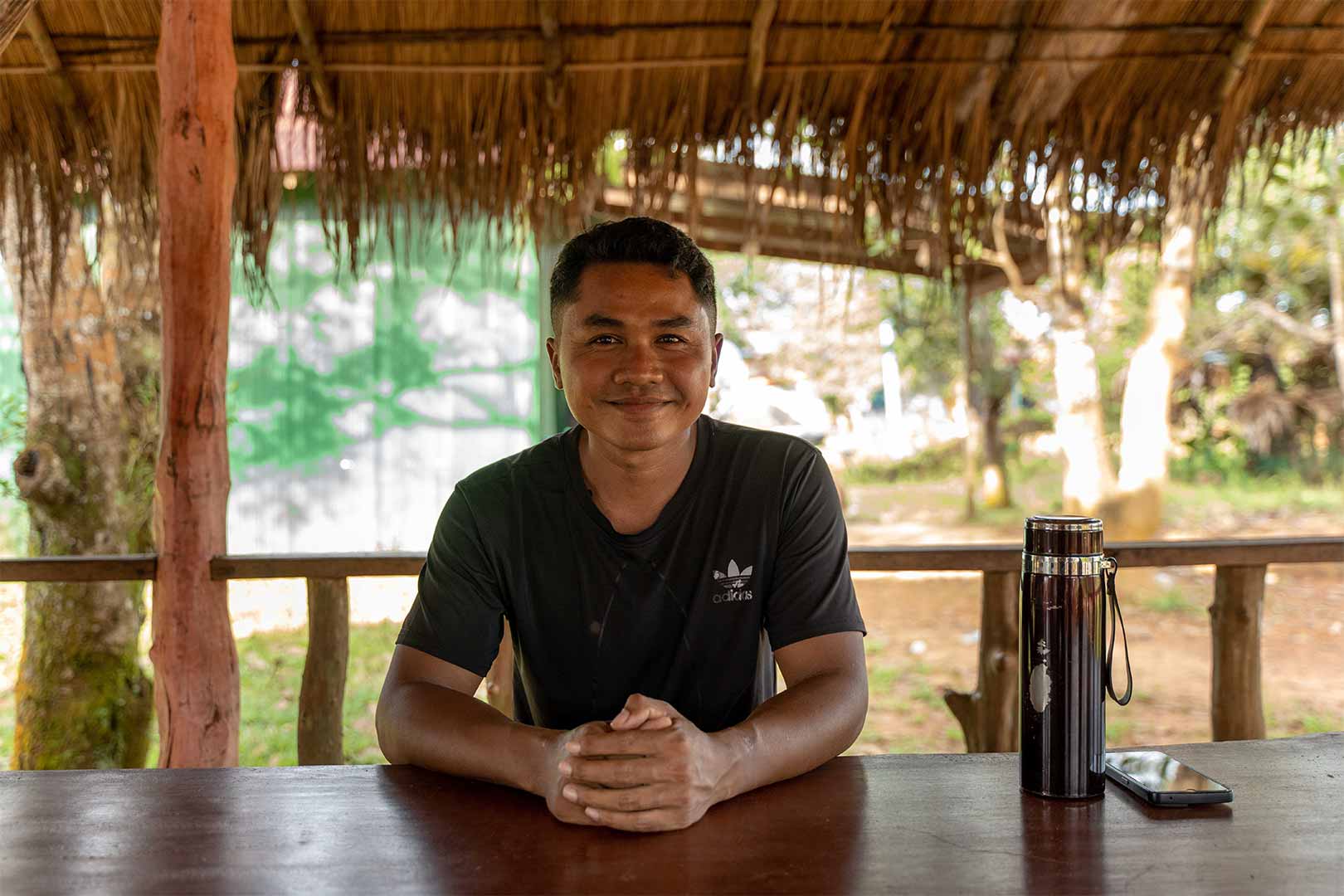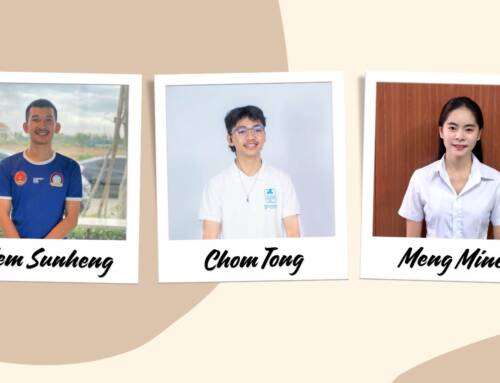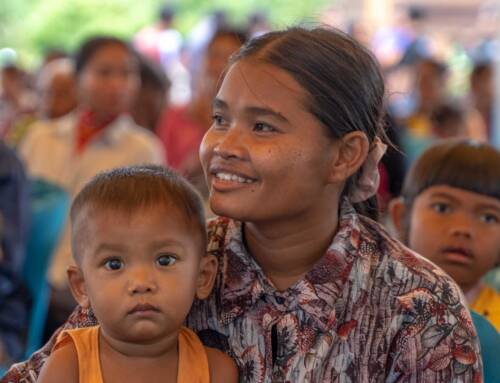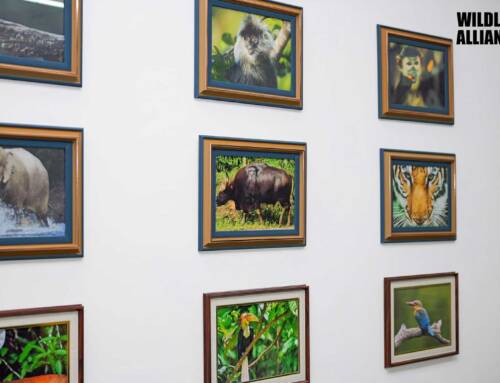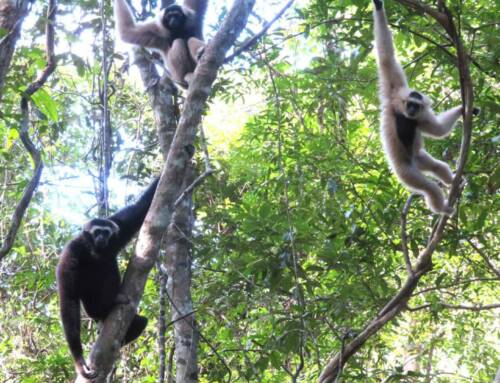Recently I had the chance to visit Chhay Areng village in Pralay Commune, Koh Kong province, a beautiful tourist attraction with its wide landscape, mountain tops, waterfalls and the clean fresh air hemmed in by nature.
I stayed at one of the Community-Based Eco-Tourism (CBET) guesthouses enjoying the surroundings of early morning fog, breathing in the fresh air, walking on the red muddy roads with trees all around. While strolling and taking in the beauty of the village, I happened to get a chance to have a little chit-chat with some of the community members. They told stories about their village, how the forest has been their religious connection for several generations and how each family is connected to the others in the community.
One that stayed with me was the story of Mr. Tith Ly, the second Deputy Commune Chief of Pralay commune. As we were talking about the village and its growth, how their lives are changing with the course of time, he spoke about his life experience and what he learned over these years.
“I am only 34-years-old, I belong to the “Chorng” indigenous community, just like many of us in this village and I am the Deputy Commune Chief. I feel very honored to be chosen to serve my community and see their lives transforming for the better. But it wasn’t this way all the time.” Tith Ly pondered.
He continued his story taking me back to his childhood. “As a young kid in the village, I followed in my parents’ footsteps which was agriculture. All the villagers at that time were into forest harvesting and its by-products that is cutting trees and delivering them to sawmills, pulp mills and other wood-processing plants. We used to live a simple life. I mean we cut down trees in the forest and farmed; we harvested rice; we had food for the whole year. Next year we repeated the same thing again, as we did not know what to do besides it.”
“But Indigenous People believe the natural world (forest and animals) are sacred. They consider themselves as one element of the natural world, and that it needs to be whole for future generations. So, in my heart I felt this was wrong – cutting down the trees and using the land for growing crops, but I had no means to express it to my parents or the community. As my family was poor, we could not even afford higher education. This continued for several years, even in my early twenties,” he said.
“In 2016, I heard about Wildlife Alliance establishing an ecotourism community in Chi-Phat village. I was eager to know more so I joined as a volunteer from our village in the meeting. Attending the meeting brought a ray of hope that our community could also be transformed into an eco-tourism destination. And I learned that Wildlife Alliance was implementing the Southern Cardamom REDD+ Project which sells carbon credits to companies often far away, by protecting our Cambodian forests. This in return helps the rural villagers like us with sustainable livelihoods. I gathered more information as to how we can create job opportunities for our villagers. The main intention of this project is to educate the communities to protect the forest and animals and we get many necessary facilities and livelihood opportunities.” smiled Tith Ly.
He was then elected as the community leader in 2016 to help in the implementation of the project in his community. “I was trained in my skills and knowledge. I also received a scholarship through the Ministry of Tourism to complete my four years Bachelor’s degree. This helped me understand the Southern Cardamoms REDD+ Project’s purpose. Wildlife Alliance helped in creating Areng into an eco-tourism destination opening many sustainable job opportunities for our community members such as cooks, tourist guides and guesthouse owners. Since 2016 I have seen our village progress in so many ways. Through the initiative of Wildlife Alliance and the Southern Cardamoms REDD+ Project our community has received solar water wells, toilets, good roads, a school, health posts and my younger brother got a scholarship in Phnom Penh under this project. Our villagers have enough income to support their families.”
“A lot of people from our community joined in 2016 and to date support the project. My future plan is to continue spreading awareness and benefits of this project, help our community to implement agricultural projects to reduce deforestation and encourage students who are currently in basic education to graduate and receive new scholarship opportunities from the REDD+ project. I firmly believe that the Southern Cardamom REDD+ Project and Wildlife Alliance will contribute to the further development of our commune.” said Tith Ly with smiling eyes.
Author: Scarlett Green

